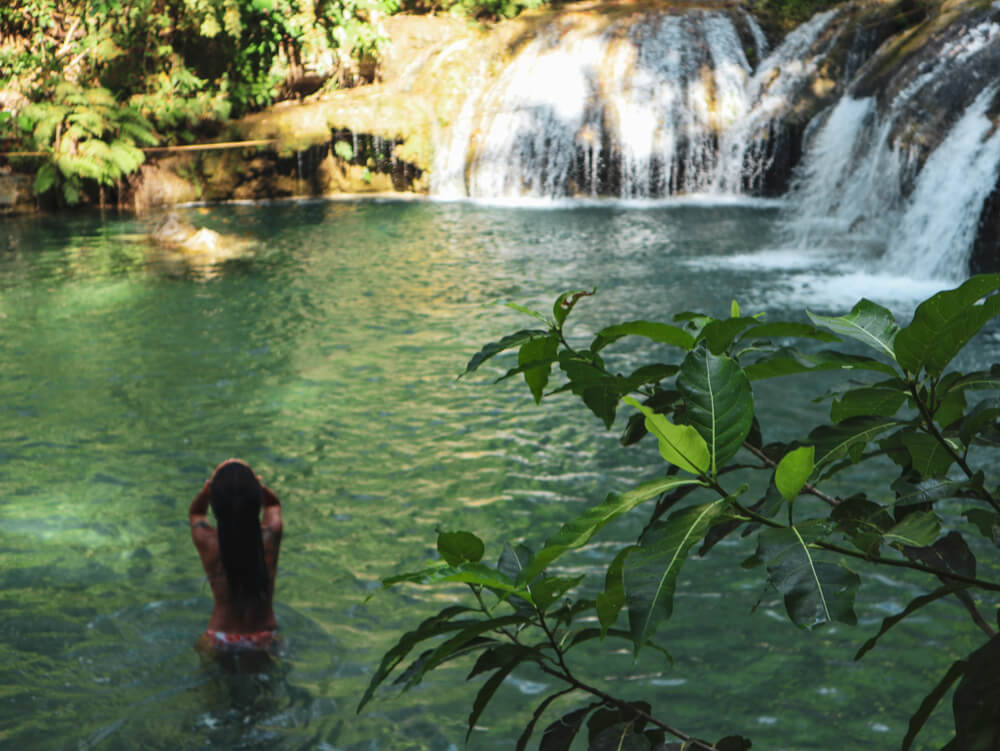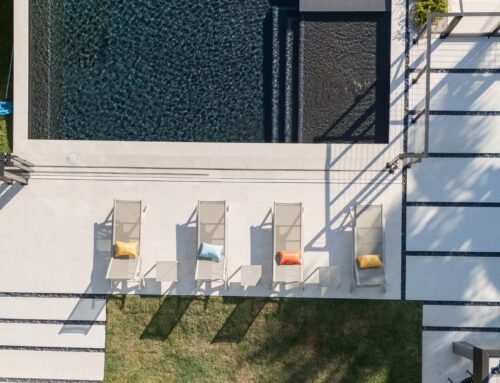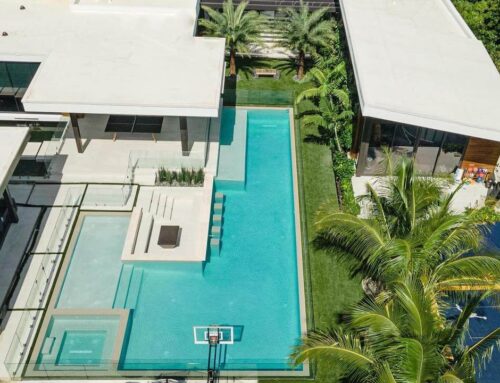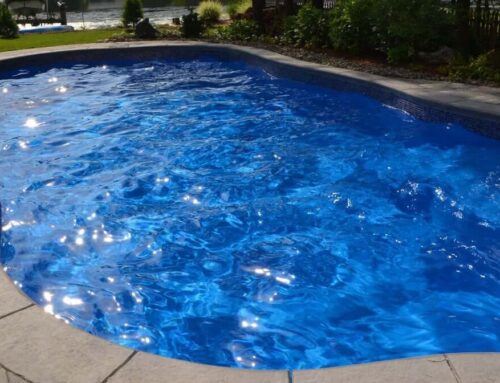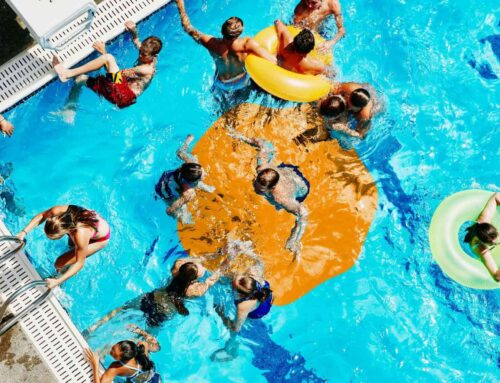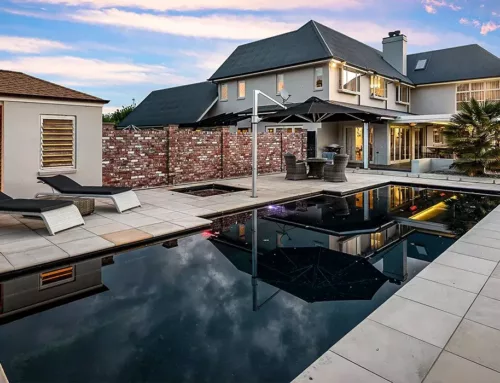Most people haven’t even heard of natural swimming pools. And of those that have, many think of them as a simple pond that people call a pool. But there’s a lot more to natural pools than most people care about.
But you’re not most people. If you’re here, it’s because you’re probably attracted to the organic beauty of natural pools, and we’re going to tell you all about them. In this article, we’ll cover some of the basics, and then you’ll learn how to build a natural pool of your own!
Let’s get started.
What Are Natural Swimming Pools
You can learn a lot from the name natural pool. Essentially, these are pools that eschew chemical purification and standard filtration methods in favor of organic filtration and water regeneration.
And, in truth, natural pools are a lot like lakes, except much smaller. All the necessary components to sustain a lake’s ecosystem are compressed into a small area to create a body for water that’s no less stable and vivacious than a natural lake.
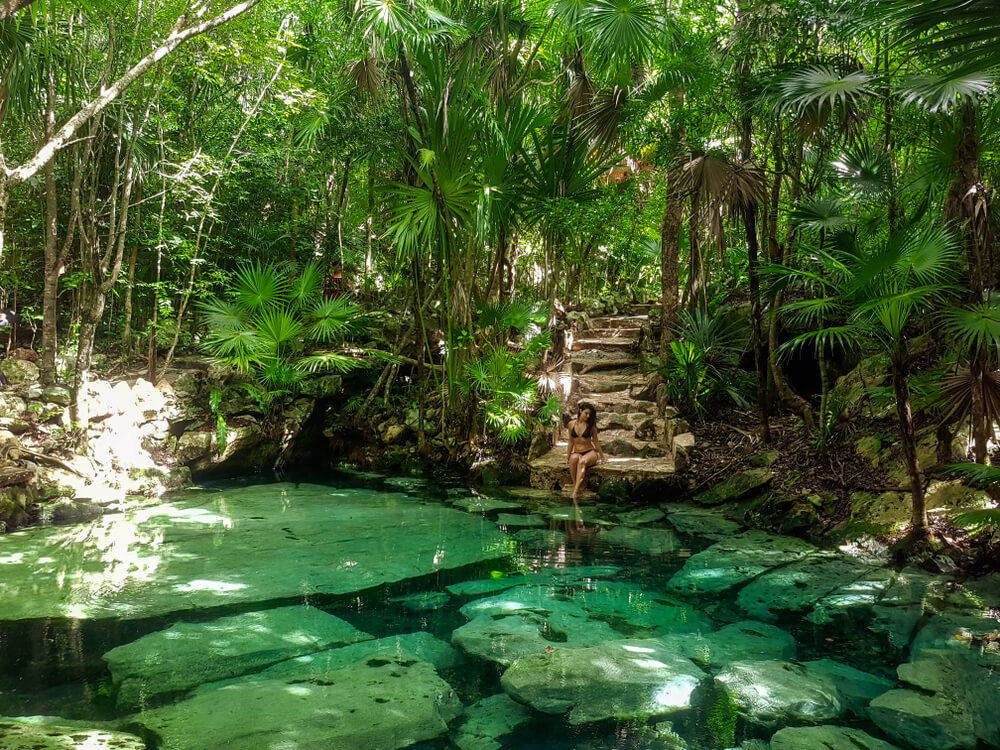
The Origins of The Natural Swimming Pool
Like so many other unusual trends, natural pools and their relative widespread use began in Europe. They’ve become quite popular in the UK in recent years, but they were originally conceived in Austria in the 1980s.
It would be disingenuous to say that natural swimming pools are anywhere near a point where they might replace traditional pools. However, an increasing number of pool owners are opting to build them or convert their traditional pools into natural ones.
How a Natural Swimming Pool Works
As you can imagine, the absence of chemicals in the water and constant movement through a filtration system needs a replacement. In natural pools, most of the heavy lifting is done by a “regeneration zone” that’s in close proximity to the main pool.
The regeneration zone has vegetation, typical to the pool’s geography, that naturally filters the water. The entire area (pool and regeneration zone) is one body of water, while the main pool is separated by walls and a pool lining. Natural pools can also include a special pump to help the water move back and forth from the pool and regeneration zone.
Whether by the action of a pump or natural motion or both, the water continually moves between the two zones, which has an effect similar to a filtration system. Other natural filtration materials, such as shale, can be included as well to help with the water cleansing.
If you’re wondering how to build a natural pool, the process isn’t that complicated. But, you’ll need the assistance of someone experienced in natural pools since they require quite a bit more planning and space than traditional pools.
It basically comes down to building a typical pool and then attaching a regeneration area to it that fits the needs and size of what you want.
Why Build a Natural Swimming Pool
There are numerous benefits to natural pools, and we’ll touch on some of the most significant ones here.
- They’re much more versatile than most people give them credit for. An expert builder can make a natural pool that resembles a traditional pool to the point that most people won’t be able to tell the difference. The only obviously different aspect is the natural regeneration area.
- They’re infinitely more environmentally friendly. Setting aside all the chemicals and power you won’t be using to maintain the pool; you’d also be contributing to the ecosystem with a natural pool. Some people even opt to include fish in their natural pools for full natural integration.
- They cost a lot less in the long run. Again, natural pools don’t require the same amount of maintenance that traditional pools do. You won’t spend money on chemicals, nor do you have to keep a pump running. You’ll still skim the top for debris, but the time and money you’ll invest in a natural pool pales in comparison to what you have to do with standard pools.
- Natural pools are at home in any climate where there are natural bodies of water — which is to say anywhere in the world. In the colder months, natural pools can freeze if the temperatures reach that point, but it’s essentially a small lake, so they’ll be fine through winters.
- They’re just plain attractive. Don’t get us wrong, a traditional pool can be a work of art, but there’s a certain charm to natural pools that can’t quite be replicated. If you’re a nature-lover, there’s no comparison.
Reasons Not To Build Natural Swimming Pools
Unfortunately, natural pools aren’t always a good idea. While it’s true that they’re less expensive in the long run, natural pools have a substantially higher initial investment. It also requires a lot more space than a typical pool. The regeneration zone is usually about the same size as the pool area, so you can expect to need twice as much room for a natural pool.
And if there is ever an algal overgrowth, you’ll need to remove it all by hand. It’s not too frequent, but it is an additional chore that you wouldn’t have with a traditional pool.
Moreover, places with very hot climates are a little less suited than temperate and cold areas. As far as locations go for a natural swimming pool Florida is not an ideal place. You can definitely have on with a bit more TLC, but it isn’t worth it for many people.
A great alternative, in that case, is a traditional pool with natural rock and water features. It’s surprising how impressive a pool with a nature-esque waterfall can be. With the right building partner, you can have many of the same benefits of a natural pool while still keeping a lot of the convenience of a standard one.
Also, as attractive as they are, they’re not for everyone. Someone who has never been swimming in natural bodies of water can find the oiliness of the water and algal presence off-putting. Natural pools are entirely safe to swim in, but there’s no way to remove all biological presence from the water.
Lastly, natural pools aren’t usually a good idea if you’re trying to add resale value to your property. Unless you happen to find a buyer who specifically enjoys natural pools, it will likely actually decrease your home’s appeal on the market.
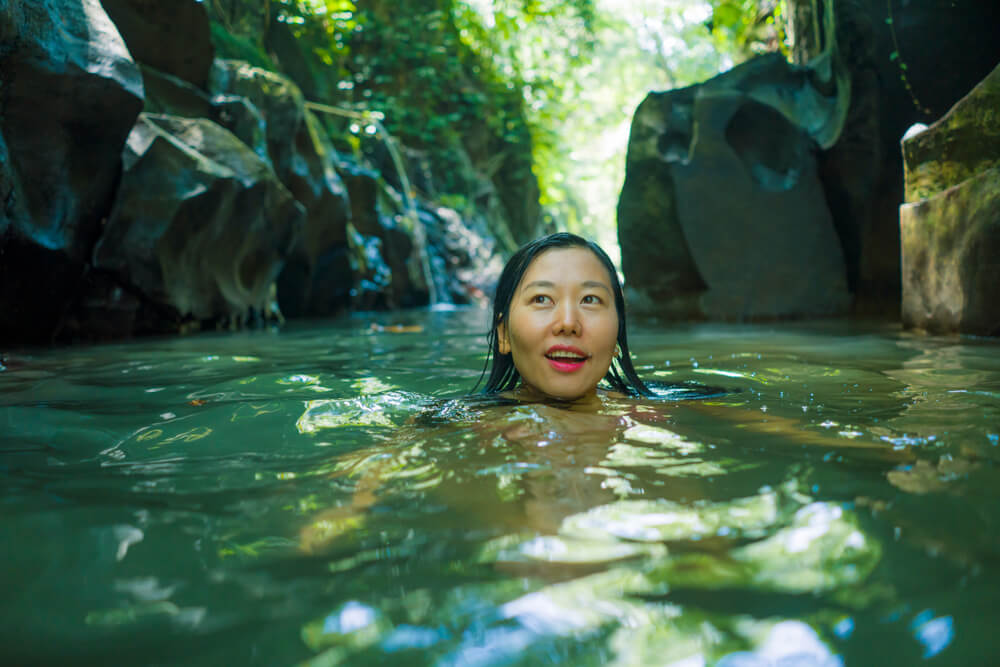
All-Natural Is An Option, But Not For Everyone
Hopefully, you learned everything you were hoping to about natural pools and more. There’s a lot to unpack, but the key takeaway is this: natural pools may seem appealing, but make sure you know what you’re getting into before committing to one.
At Florida Pool and Patio, we’re committed to being completely transparent with our customers. If you’d like to discuss your options, don’t hesitate to call us and speak with one of our pool installation professionals.
What do you think about natural pools? Will you be making the switch, or do you want to install one on your property? Let us know in the comments.

